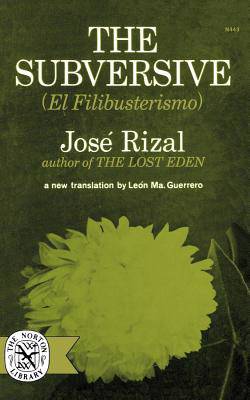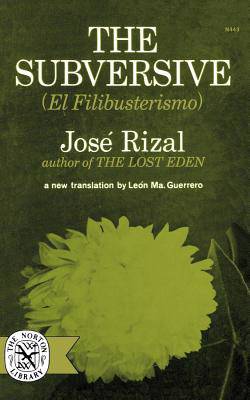
- Afhalen na 1 uur in een winkel met voorraad
- Gratis thuislevering in België vanaf € 30
- Ruim aanbod met 7 miljoen producten
- Afhalen na 1 uur in een winkel met voorraad
- Gratis thuislevering in België vanaf € 30
- Ruim aanbod met 7 miljoen producten
Omschrijving
José Rizal has a good claim to being the first Asian nationalist. An extremely talented Malay born a hundred years ago in a small town near Manila, educated partly in the Philippines and partly in Europe, Rizal inspired the Filipinos by his writing and example to make the first nationalist revolution in Asia in 1896. Today the Philippines revere Rizal as their national hero, and they regard his two books, The Lost Eden (Noli Me Tangere) and The Subversive (El Filibusterismo) as the gospel of their nationalism.
The Subversive, first published in 1891, is strikingly timely today. New nations emerging in Africa and Asia are once again in conflict with their former colonial masters, as were the Filipinos with their Spanish rulers in Rizal's day. The Subversive poses questions about colonialism which are still being asked today: does a "civilizing mission" justify subjection of a people? Should a colony aim at assimilation or independence? If independence, should it be by peaceful evolution or force of arms?
Despite the seriousness of its theme, however, The Subversive is more than a political novel. It is a romantic, witty, satirical portrait of Spanish colonial rule in the Philippines at the end of the nineteenth century, written in the tradition of the great adventure romances. The translation by Leon Ma. Guerrero, Philippine ambassador to the Court of St. James, conveys the immediacy of the original, and makes this important work available to a new generation of readers. His translation of The Lost Eden is also available in the Norton Library.
Specificaties
Betrokkenen
- Auteur(s):
- Vertaler(s):
- Uitgeverij:
Inhoud
- Aantal bladzijden:
- 324
- Taal:
- Engels
Eigenschappen
- Productcode (EAN):
- 9780393004496
- Verschijningsdatum:
- 1/04/1968
- Uitvoering:
- Paperback
- Formaat:
- Trade paperback (VS)
- Afmetingen:
- 124 mm x 203 mm
- Gewicht:
- 362 g

Alleen bij Standaard Boekhandel
Beoordelingen
We publiceren alleen reviews die voldoen aan de voorwaarden voor reviews. Bekijk onze voorwaarden voor reviews.








